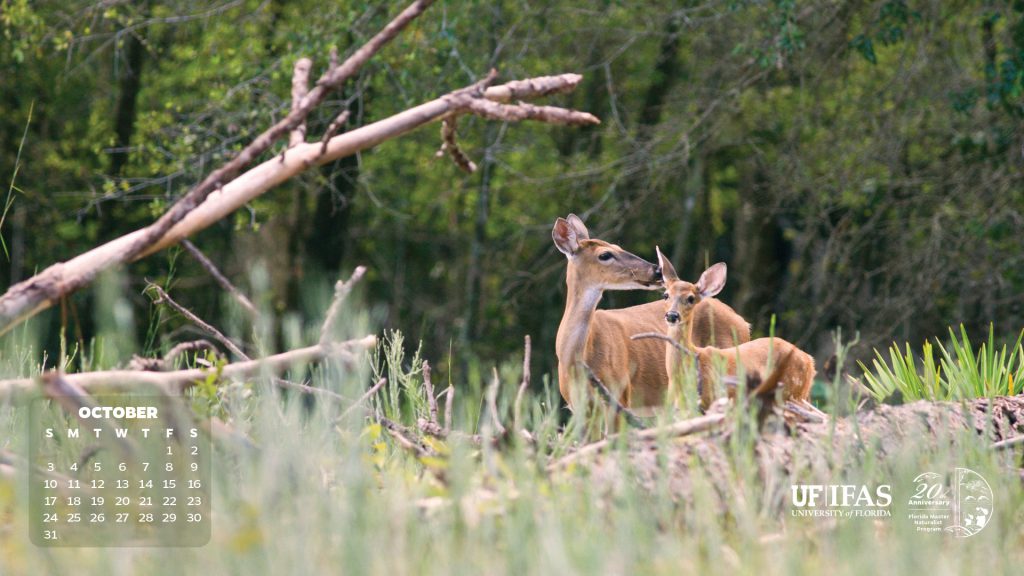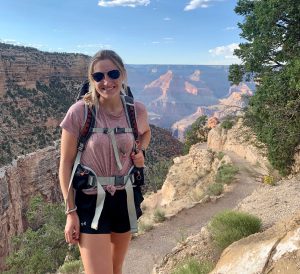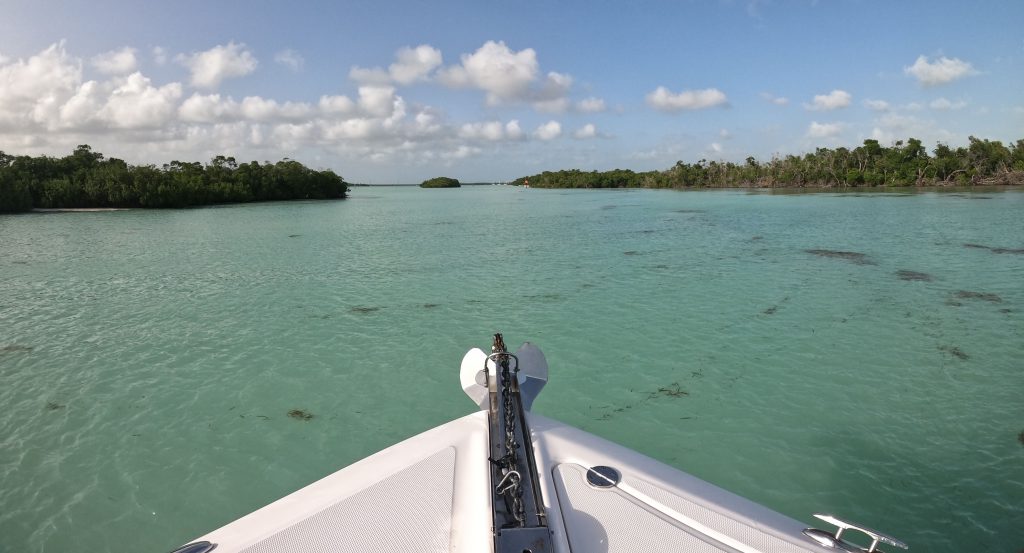We’re highlighting all things Florida Master Naturalist Program (FMNP) in 2021 as the program marks its 20th anniversary. To learn more about FMNP, view the first blog post here.

This month we are excited to feature Savannah Gardner, the FMNP’s new Program Assistant.

Q. Hi Savannah! We are so excited to have you as a part of the FMNP team. Tell us a little bit about your background.
A. My appreciation for our natural world is bound deep within my roots. As a young child, I sprouted in the outdoors, learning how to cast a line, hang a tree stand, and hike through all types of Florida terrain.
I earned a bachelor’s degree from the UF department of agricultural education and communication in May 2021 and am currently pursuing a master’s degree from the same department.
I have also conducted research on the human impacts on artificial reefs in the Gulf of Mexico and the impacts of an undergraduate leadership program at UF. I helped with the environmental restoration of over 1,000 feet of Florida Panhandle shoreline by bagging oyster shells, propagating shore grasses, and constructing oyster castles to reduce shoreline erosion.
Q. What brought you to the Florida Master Naturalist Program?
A. The Florida Master Naturalist Program is the perfect education program to help adults to learn more about Florida’s environment and be an advocate for our planet. I wanted to be a part of this incredible program to help others learn more about the great state of Florida and be a part of a team that is working to extend the land-grant mission to teach agriculture and environmental sciences to everyone. I believe that science and our environment lead the way in the future and there is so much that still needs to be learned and discovered.
Q. What is your role with the program?
A. As the FMNP program assistant, I will help with marketing for FMNP, including compiling and editing the newsletter and sharing on social media. In addition, I will help support program logistics by reviewing course agendas, updating records, and helping with program impacts and data. I am so excited to be a part of this team and work on capturing the stories and events happening across the state of Florida.
Q. What are your long-term goals?
A. I hold an innate fondness for our natural world, and I want to spend my life advocating for this monumental cause in whatever way plausible. It is my goal to communicate on all platforms the importance and necessity of the outdoor experience to all ages, races, genders and ethnicities. Being in the field of marketing and communications gives me the ability to share stories and experiences about the incredible organic world that we live in.

Q. Do you have a project or component of the program that you are most excited to work on?
A. I am most excited to work on the FMNP’s social media and newsletter. Social media is such a powerful tool to connect and educate others on important issues impacting Florida’s environment. I enjoy social engagement with members online and writing and sharing stories, especially about Florida’s environment. I am so excited to spread the word about FMNP and hopefully reach and engage with new individuals.
Q. What do you think is the most important component of the Florida Master Naturalist Program?
A. Education is the most powerful tool that anyone can obtain and grow throughout their lifetime. Master Naturalists can use their knowledge to volunteer, work, and guide others through Florida’s natural environment. This legacy of informed citizens and stewards of Florida’s environment will have a domino effect of awareness, understanding, and respect of Florida’s natural ecosystems.
Q. Florida is facing a number of different environmental challenges. What work would you like to see the next generation of Master Naturalists address?
A. In Florida, invasive species are a rising issue that continue to threaten our environment. I would love to see the next generation of Master Naturalists work to address these species that are devastating native species. Florida has the perfect climate for many non-native species to thrive and consequently weed out our keystone species. I believe that rising generations are going to be critical to removing invasive species and educating the general public about the severity of this issue. Florida Master Naturalists can be the spark to start a movement through education, community awareness and personal change. In fact, the FMNP recently released an Invasive Plants Restoration Course to help educate others about this issue.
Q. Do you have any advice for current or future Master Naturalists?
A. In my short time working with the Florida Master Naturalist Program, I have heard a lot about the FMNP Friends Groups. These groups are an incredible opportunity to stay engaged and become more involved in environmental events throughout the state of Florida. If you are a Master Naturalist graduate or plan to become involved, I highly recommend finding your local chapter and participating in the events that they offer. You could even consider creating a group in your area if there isn’t one! Many Friend Groups offer field trips, speakers, beach clean-ups, and other conservation activities that offer invaluable experiences in Florida’s natural ecosystem. You can find the current list of FMNP Friends Groups here.

Q. What do you do for fun?
A. My heart is the happiest when I am fully present in the outdoors traveling, exploring and experiencing nature to the fullest. I enjoy hiking, hunting and fishing with my family and friends. My family is a big part of my life and I love making memories with them outdoors.
In addition, I enjoy training for and racing in triathlons. A triathlon is the perfect multisport endurance race consisting of swimming, biking, and running various distances. In May 2019, I completed my first Ironman 70.3 (1.2 mile swim, 56 mile bike, and 13.1 mile run) and I was absolutely hooked. I am currently training for a full marathon which will take place in Washington, D.C., on Oct. 31!
 0
0
